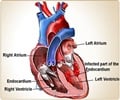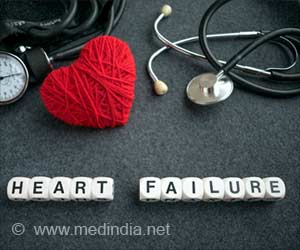Low income seniors face a higher risk of having heart failure regardless of their educational qualification findings of a new study states.

"As far as the risk of developing heart failure is concerned, lower education may not matter if a person is able to maintain a high income in later years," said Ali Ahmed, M.D., M.P.H., senior researcher.
Researchers said they were surprised by the influence of income on heart failure risk in a population where nearly everyone has health insurance that provides care for major heart failure risk factors such as hypertension, diabetes and coronary artery disease.
Although both poor and the well off benefit from the Medicare program, there may be certain differences that expose the poor to sub optimal care for major heart failure risk factors.
Researchers reviewed National Heart, Lung and Blood Institute records of 5,153 Medicare-eligible older adults without heart failure in the Cardiovascular Health Study who lived independently in four U.S. communities in the early 1990s.
They separated patients into groups based on education and income levels.
Advertisement
After 13 years eighteen percent of older adults with high education and high income developed heart failure.
Advertisement
In contrast, 23 percent of older adults with low income developed heart failure regardless of their education level.
Patients with low education and low income were worse off, with a 29 percent increased risk, compared to those with high education and high income, which was independent of other risk factors for heart failure.
Low-income patients may be unable to pay out-of-pocket costs related to health care that Medicare provides.
"They may have to choose between their drugs and their groceries. Or the out-of-pocket expenses might adversely affect how often they go see their doctor," said Ahmed, director of the Geriatric Heart Failure Clinics at the University of Alabama at Birmingham and the Birmingham VA Medical Centre.
The research was presented at the American Heart Association's Scientific Sessions 2011.
Source-ANI













